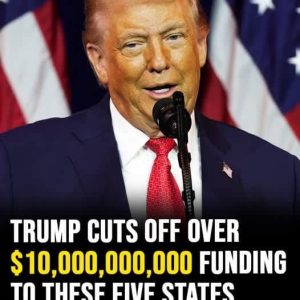President Donald Trump has escalated his rhetoric around the legal challenges to his tariff program, warning that “foreign interests” are actively working to undermine his economic agenda. On Truth Social, he claimed that opponents of his tariffs are aligned with “hostile foreign interests” seeking to weaken the United States politically and economically — especially ahead of the 2026 midterm elections. Trump argues that a Supreme Court decision against his tariffs would be catastrophic: not only could it force the U.S. to refund hundreds of billions of dollars in duty collections, but it would also amount to a major national security blow. He asserts that many critics don’t act from genuine concern for America, but from foreign financial incentives. Trump frames the tariffs not simply as economic tools, but as central to preserving U.S. sovereignty, independence, and prosperity.
Backing up Trump’s political posture, Commerce Secretary Howard Lutnick has publicly defended the administration’s faith in winning the legal battle. Speaking on Fox Business, Lutnick described the tariffs as more than protectionist measures — he labeled them “a cornerstone” of national security policy, arguing that they are critical to defend U.S. industries from unfair foreign competition. He said he attended Supreme Court oral arguments and left optimistic, calling the legal case “pretty clear.” Lutnick also pointed to other statutory avenues, including Sections 232, 301, and 338 of U.S. trade law, as fallback tools that the administration could use to impose trade restrictions even if some tariffs are struck down. The implication: the administration is preparing a layered, legally resilient strategy to maintain pressure on trade partners.
Trump has openly urged the Supreme Court to expedite its ruling against lower court decisions that struck down many of his tariffs. After a 7–4 appeals court ruling declared that his use of the International Emergency Economic Powers Act (IEEPA) exceeded his authority, Trump filed a petition for review and asked for an “expedited” decision. He dismissed the appeals court ruling as a “judicial tragedy” that threatens the “financial fabric” of the United States. Trump has repeatedly warned that reversal of his tariff regime could trigger a $3 trillion economic unwind, describing it as an “insurmountable National Security Event” that could undermine the country’s strategic and financial stability.
At the same time, key figures in his administration have submitted legal filings that cast the stakes as existential for U.S. foreign policy. In its petition to the Supreme Court, the government argues that a ruling against the tariffs would not only undermine national security but could also “derail critical ongoing negotiations” and expose the U.S. to diplomatic retaliation. The argument is that the tariffs are deeply intertwined with geopolitical strategy, not just fiscal or economic policy.
Despite the administration’s aggressive narrative, critics emphasize that the courts are seriously challenging Trump’s legal foundation. The U.S. Court of International Trade, in V.O.S. Selections, Inc. v. Trump, ruled that the so-called “Liberation Day” tariffs went beyond what IEEPA allows — finding that the declared national emergency did not justify the broad import taxes imposed. In consolidated Supreme Court oral arguments, several justices expressed deep skepticism about the executive’s claim that IEEPA grants tariff-making power. They raised concerns that allowing such an interpretation would hand presidents a virtually unchecked ability to impose taxes — a power that, constitutionally, largely belongs to Congress.
Trump and his allies are framing this fight as a high-stakes battle over national integrity. He has warned the Court that striking down his tariff regime would weaken the U.S. not just economically — it would undermine its geopolitical leverage and security posture. Lutnick echoes this by arguing that strong, rational tariff policy is essential to U.S. strength and resilience, especially amid a rapidly changing global landscape. Whether the Court upholds his argument could reshape the role of presidential power in economic and national security policy.
Ultimately, this conflict isn’t just legal — it’s deeply political. Trump’s framing aligns tariffs, trade, and court battles into a single narrative of foreign influence, national strength, and executive authority. If the Supreme Court rules against him, the consequences could go far beyond trade: they could curtail his vision for executive-driven economic sovereignty. On the other hand, a ruling in his favor would be an enormous vindication of his approach, with long-term implications for how future presidents wield emergency and trade powers.





